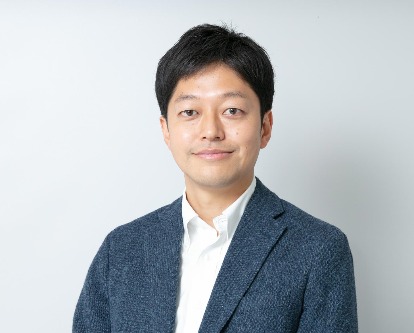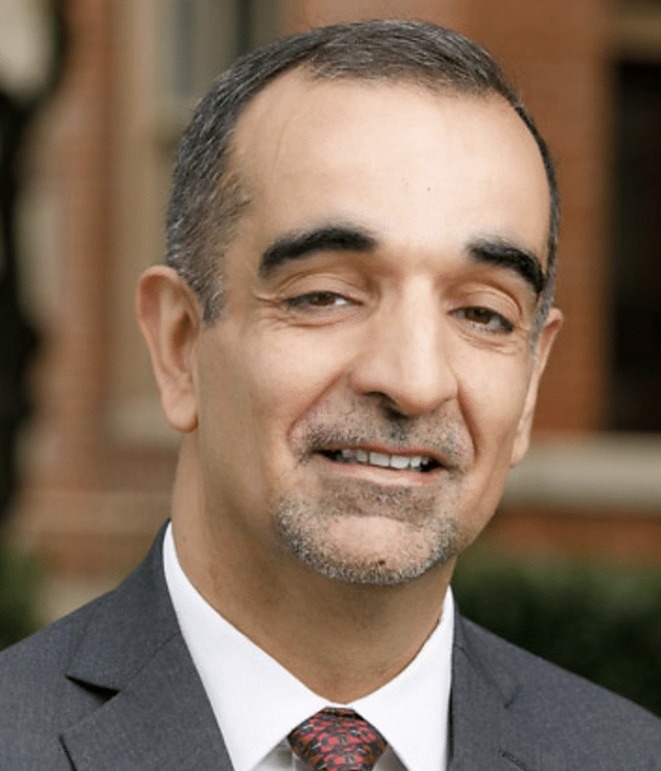
Pacenote Improves Access to Nursing Home Care in Japan
Through Pacenote, Tomohiro Nojiri MBA ’16 is helping families find nursing home beds and services in real-time.
Improvisation Exercises Teach Leadership Development in Spring Course
Improvisation Exercises Teach Leadership Development in Spring Course
Professor Marco Aponte-Moreno sets the stage for undergrads to build leadership competency skills essential in the business world.

Marco Aponte-Moreno, professor of clinical management and organization, teaches leadership development through a series of improv and role-playing exercises.
[USC Photo]
Not too many business professors can name drop Martin Scorsese or possess a credited role in one of his Oscar-winning films. Unless you’re Marco Aponte-Moreno.
This spring, the professor of clinical management and organization mixes his passion for acting with his business knowledge in an intimate class for undergraduates titled, MOR 498: Leadership through Improvisation and Role Play.
Viewing leadership as an extension of performance, Aponte-Moreno will teach Marshall students the methods and skills necessary to benefit their development as leaders, especially in business settings.
“We can really learn from acting and from acting techniques, and if we adopt them, we can improve our leadership skills,” Aponte-Moreno said.
Aponte-Moreno co-teaches the course with Kirstin Eggers, an assistant professor of theatre practice in comedy performance at the USC School of Dramatic Arts. Each week, the class is divided into two focuses: Aponte-Moreno centers his lectures on leadership strategies in business while Eggers engages the students in interactive theater exercises to bring those concepts to life.
Aponte-Moreno often discusses “psychological safety” in class with his students — being in a workplace where people feel that they can express themselves. Creating that type of environment is a function of leadership, which leads to team cohesion and productivity.
“Let’s say you’re developing a team and the team does improv together [like team building exercises], that helps with psychological safety because everyone is very vulnerable. The dynamics completely change because then people feel that they can talk to each other in a different way,” Aponte-Moreno explained.
Working in small groups in class on their improv skills, students focus on self-analysis and personal insight, which are key outcomes of the MOR 498 course. Students also leave the class equipped with leadership best practices, aiding their the ability to make decisions in open and flexible ways, to think on their feet, and to communicate effectively in changing environments.
Originally from Venezuela, Aponte-Moreno began taking acting classes when he was a banker in New York City as a way to improve his accent. The speech and improv lessons proved fruitful in more ways than one. With more than 20 years of theatre experience, he has performed on Off-Off Broadway and continues to act locally with the Santa Monica Playhouse. But for the professor, the stage presence fostered through acting offered a surprising benefit: leadership.
When we are the leaders of a team, we’re performing as the leader, and then we act a certain way, we think a certain way, we interact with people in a certain way.
— Marco Aponte-Moreno
Professor of Clinical Management and Organization
“The idea is that we’re always performing,” Aponte-Moreno explained. “Leadership is a performance. It’s a role played by leaders to inspire followers to achieve a shared goal. So when we are the leaders of a team, we’re performing as the leader, and then we act a certain way, we think a certain way, we interact with people in a certain way.”
That belief forms the basis of Aponte-Moreno’s SPACE model of leadership, developed in class and explained further in his first book, Leadership as Performance: Developing Leadership Skills through Acting.
The professor’s SPACE model — self-awareness, presence, authenticity, communication, and emotional intelligence — was influenced by Peter Brook’s concept of the “empty space,” in which any empty space could be considered a bare stage. As Aponte-Moreno sees it, any empty space is an opportunity to display leadership: understanding how to motivate and influence others, leading teams, and navigating cross-cultural settings are necessary tools to cultivate engagement and connect emotionally.
“I believe that any leadership model should start with self-awareness to really understand who we are. And then the second one is presence as a leader, we need to have a certain presence,” Aponte-Moreno said. “When you stand in front of a group of people that go to see you, you need that presence also to inspire trust. That leads to authenticity.”
The first three values set the stage for leadership development, followed by qualities that draw individuals toward you. Effective communication is a top priority for leaders.
According to the professor, the ultimate example of this approach was Steve Jobs. His Apple product launches changed the face of the boring tech presser not only because of his revolutionary innovations, but through his command of the stage and the rapture of his audience.
Introduced in spring 2024, the MOR 498 course has already paid dividends for USC students.
While at Marshall, Candace House ’24 was a BUSINESS OF CINEMATIC ARTS (BCA) student and co-executive director of the BLACK STUDENT ASSEMBLY (BSA) and Mustafa Ali Khan ’24 studied Business Administration (BUAD) and was the chief communications officer for USC’s Undergraduate Student Government. House, a SHINE marketing associate at Deloitte, and Ali Khan, a regional organizer for the DNC during the 2024 election, each immediately put their newfound improv and leadership skills to use after their May graduation.
“You can use these improv techniques and these leadership skills anywhere. I’m more of a task-based leader, and I just really want to get things done,” House reflected. “But I could really improve on making sure relationships are being built within a team. The class helps you reflect on your own leadership style and how you can change based on the people you’re leading. I learned that a lot.”
After enjoying Aponte-Moreno’s Cross-Cultural Negotiations class, Ali Khan was intrigued by what the connection between leadership and improv could be. And it didn’t disappoint.
“Oftentimes in leadership, you have to make decisions on the fly, and you have to be quite confident in those decisions,” Ali Khan remarked. “[The class] helped me make more decisions rapidly and be confident in them.”
Ever the renaissance man, Aponte-Moreno’s acting journey has spanned the stage, the classroom, and the bookshelf. But what is his dream role?
“Shylock in The Merchant of Venice,” Aponte-Moreno mused. “It’s such a great character.”
His students might argue that playing a villain would be out of character for the Golden Apple Award winner for mentorship.
“He’s such a sweetheart,” Ali Khan added. “This class is awesome, but Professor Marco is even better. The way he’s able to explain the concepts and connect it back to things that are relevant to us is, I think, second to none.”
RELATED
Pacenote Improves Access to Nursing Home Care in Japan
Through Pacenote, Tomohiro Nojiri MBA ’16 is helping families find nursing home beds and services in real-time.
Rising House Prices Are Hollowing Out the Middle Class in Big Cities
Assistant Professor Andrii Parkhomenko’s research analyzes how rising housing prices are driving economic polarization.
Interview: Marco Aponte Moreno on CNN
Aponte-Moreno explains how the United States’ seizing of a Russian-flagged oil tanker linked to Venezuela may have repercussions in the global energy industry.
From AI Club to Google Internship: A Q&A with Student Leader Francesca Kubica
MAIA executive director and Marshall student Francesca Kubica discusses student leadership and translating AI education into industry experience.
Research: David Hirshleifer in MSN
Hirshleifer’s research suggest animated GIFs on social media may indicate stock trends and behaviors.